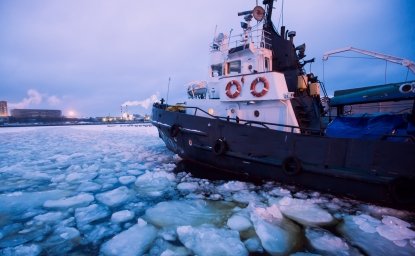Proceedings of The Arctic and US National Security Symposium


The Arctic and US National Security, a symposium hosted by the Wilson Center’s Polar Institute in December 2018, provided a timely opportunity to explore and promote Arctic security discussions at a critical moment for the region. The symposium included policy leaders currently drafting branch-specific Arctic strategies, solicited comments from senior officials from the Departments of Defense, Homeland Security, and Commerce, and elicited guidance and perspective from individuals representing the State of Alaska, industry, and research community. The resulting dialogue provided productive operational and policy insight at the start of the 116th United States Congress.
The broad findings include the need for the US government to prioritize Arctic security and related issues as the region becomes increasingly globalized. Investment in critical infrastructure and a more pronounced, sustainable US military presence are needed. The rapidly changing climate requires continued, purposeful, and coordinated scientific research to include enhanced observation networks. Communicating the needs and capabilities of US Arctic stakeholders is critical, and will help inform and influence relevant policy-making processes and results.
These proceedings succinctly summarize the speakers’ comments throughout the daylong event, highlighting key themes and findings. Each speaker’s presentation is hyperlinked, providing access to full remarks and any accompanying visuals. We believe it is important to make available these narratives, perspectives, and insights.
Authors


US Ambassador-at-Large for Arctic Affairs; Former Chair, US Arctic Research Commission


Polar Institute
Since its inception in 2017, the Polar Institute has become a premier forum for discussion and policy analysis of Arctic and Antarctic issues, and is known in Washington, DC and elsewhere as the Arctic Public Square. The Institute holistically studies the central policy issues facing these regions—with an emphasis on Arctic governance, climate change, economic development, scientific research, security, and Indigenous communities—and communicates trusted analysis to policymakers and other stakeholders. Read more

Explore More
Browse Insights & Analysis
5-Part Series: The Arctic and US National Security

Wilson Center-Arctic Circle Forum Proceedings

